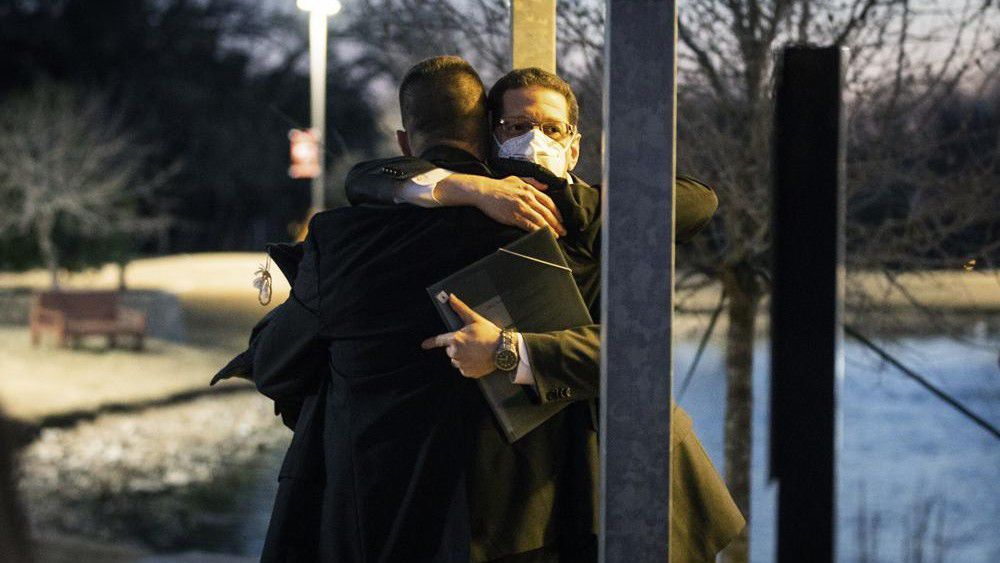The FBI is investigating Saturday’s hostage standoff at a synagogue in Colleyville, Texas, as an act of terrorism that targeted the Jewish community. That’s according to FBI Director Christopher Wray, who on Thursday was part of an Anti-Defamation League webinar that also featured Rabbi Charlie Cytron-Walker of Congregation Beth Israel, who was among the hostages during the hours-long Jan. 15 standoff.
“We understand all too well that these kinds of impacts are terrifying. This was not some random occurrence,” Wray said.
The FBI director said the events that unfolded over more than 10 hours Saturday exemplify the types of threats his agents are working to combat these days and reflect an uptick in threats to the Jewish community.
Contrasting the hostage standoff with the organized terror attacks of 9/11, Wray said the FBI is increasingly dealing with “lone actors” whose unsophisticated plans frequently have deadly outcomes.
Wray also disclosed that responding field agents initially feared the hostage-taker, identified as 44-year-old British national Malik Faisal Akram, who was killed by law enforcement, was in possession of bombs.
Wray said his agency has worked with the ADL and the Jewish community to build bonds and it was those bonds in addition to training the ADL provides that saw the four hostages freed without injury.
Cytron-Walker said he initially had no reason to fear or be suspicious of Akram.
On Saturday, as Cytron-Walker was preparing services, Akram approached the synagogue and, because it was cold that day, asked if they provide night shelter.
There were only four people present in Congregation Beth Israel at the time, and Akram was allowed in.
Cytron-Walked said the man was calm and appreciative, had a few bags with him and talked about how he’d been walking. The rabbi said he looked him in the eye when speaking to him, appeared to be telling the truth and there were no immediate red flags. Cytron-Walker made tea for Akram and continued talking to him.
However, after a time Akram demanded to speak with Rabbi Angela Buchdahl of New York. Cytron-Walker said he then figured out Akram’s mindset.
“I thought we were in trouble,” Cytron-Walker said. “I knew what he didn’t. I knew Jews don’t control the world. Jews were more important in his mind than anyone else.”
Cytron-Walker said Akram did make threats about being in possession of a bomb.
“He was talking about how he had a bomb and he wanted the area cleared,” he said.
Cytron-Walker credited his relationships in the community with bringing the ordeal to a resolution in which the captives were physically unharmed.
“I was emailing with the Colleyville police chief. We had a security plan in place,” he said.
Cytron-Walker earlier said he managed to throw a chair at the gunman and escape with the two other remaining hostages.
Earlier on Thursday, British police said they have arrested two people in connection with the hostage-taking.
Counter Terrorism Police North West said one man was arrested Thursday in Birmingham, central England, and another in the northern English city of Manchester. They are being held for questioning and have not yet been charged.
The Associated Press contributed to this report.



